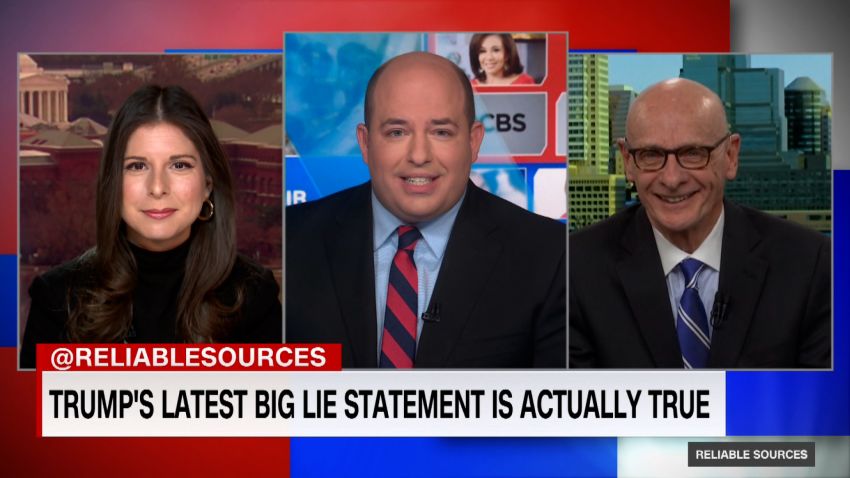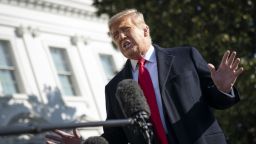Editor’s Note: Laura Coates is a CNN senior legal analyst and author of “Just Pursuit: A Black Prosecutor’s Fight For Fairness.” She is a former assistant US attorney for the District of Columbia and trial attorney in the civil rights division of the Department of Justice. Coates is the host of the daily “Laura Coates Show” on SiriusXM. Follow her @thelauracoates. The views expressed in this commentary are her own. View more opinion on CNN.

There’s an even bigger lie than the so-called “Big Lie” that we don’t have fair and free elections in this country – and perhaps one that is even more dangerous to our democracy.
While the Big Lie is premised on the patently false notion that the 2020 election was fraudulently stolen by the Democrats, the Bigger Lie is that states have never tried to claw back voting rights protections until that notion.
States like Georgia had already benefited from two US Supreme Court decisions that weakened the protections of the Voting Rights Act of 1965 bill: First, in Shelby County v. Holder, the Supreme Court struck down Section 5’s preclearance formula that required certain covered jurisdictions with a history of discrimination to obtain the prior approval of the Department of Justice before making any voting-related changes. Ever since, these jurisdictions have been able to change their voting laws with not only complete autonomy but also complete disregard for the principles of voting equality. And they have largely succeeded in doing so with impunity.
The inability to challenge voting rules before they are enacted severely weakened the protections of the Voting Rights Act, but there was hope that litigants at least had recourse to challenge and block discriminatory laws under Section 2 of the Act. But, this past July, in its holding in Brnovich v. Democratic National Committee, the Supreme Court dealt yet another blow to the Voting Rights Act, narrowly interpreting Section 2 and making it harder to challenge such laws even after the fact. Combined, these Supreme Court decisions have rendered the Voting Rights Act anemic at best. Now, litigants have limited recourse to either prevent or challenge discriminatory laws.
The Big Lie was the final installment of a trilogy on an attack on arguably our most important civil rights legislation. Several states, including Georgia and Texas, exploited an opportunity to ride the wave of public distrust and recently used it as a pretext to justify the passage of legislation that solves a non-existent problem of widespread voter fraud.
For years, Republican-led legislatures have been attempting to convince the electorate that fraud not only exists, but that it is so rampant that it required strict voter laws to prevent it. But without the benefit of either widespread evidence or a powerful spokesman willing to use their megaphone for falsehoods, many of the state attempts largely fell upon deaf ears. That is, until then-President Donald Trump’s post-election campaign to promote the Big Lie.
There was still a dearth of evidence, but this time the megaphone was held by the President of the United States of America who had fallen short of an electoral victory yet still secured just over 74 million votes. That was the missing link that provided cover for states that were already chomping at the bit to further restrict their voting laws. Now, the non-existent fraud could be used not only as a catalyst for legislation but a conduit to try to delegitimize election results.
As we near the first anniversary of January 6, we necessarily focus on the conduct of those who organized, facilitated and carried out a physical attack on the citadel of our democracy. But we must also focus on what is happening, and continues to happen, in the periphery, particularly attempts to use the Big Lie to justify the adoption of practices that not only deny or interfere with US citizens’ right to vote, but to have those votes be counted by an apolitical body.
The Big Lie remains false, but the self-evident truth is that our democracy is under attack by those who keenly understand the power of the vote. It is not widespread voter fraud that they fear; it is widespread voter participation. It would be foolish to investigate an insurrection without continuing parallel investigations by the Department of Justice into state laws that target minority voters by adopting laws with discriminatory features, that actively seek to disenfranchise them and that create gerrymandered districts that dilute their voting power and strength.
The Department’s existing lawsuits against states like Georgia are important, and perhaps even serve as a deterrent against others hoping to avoid costly and protracted battles with the federal government. But if we’re being honest, legislative prevention is better than litigation cure.





